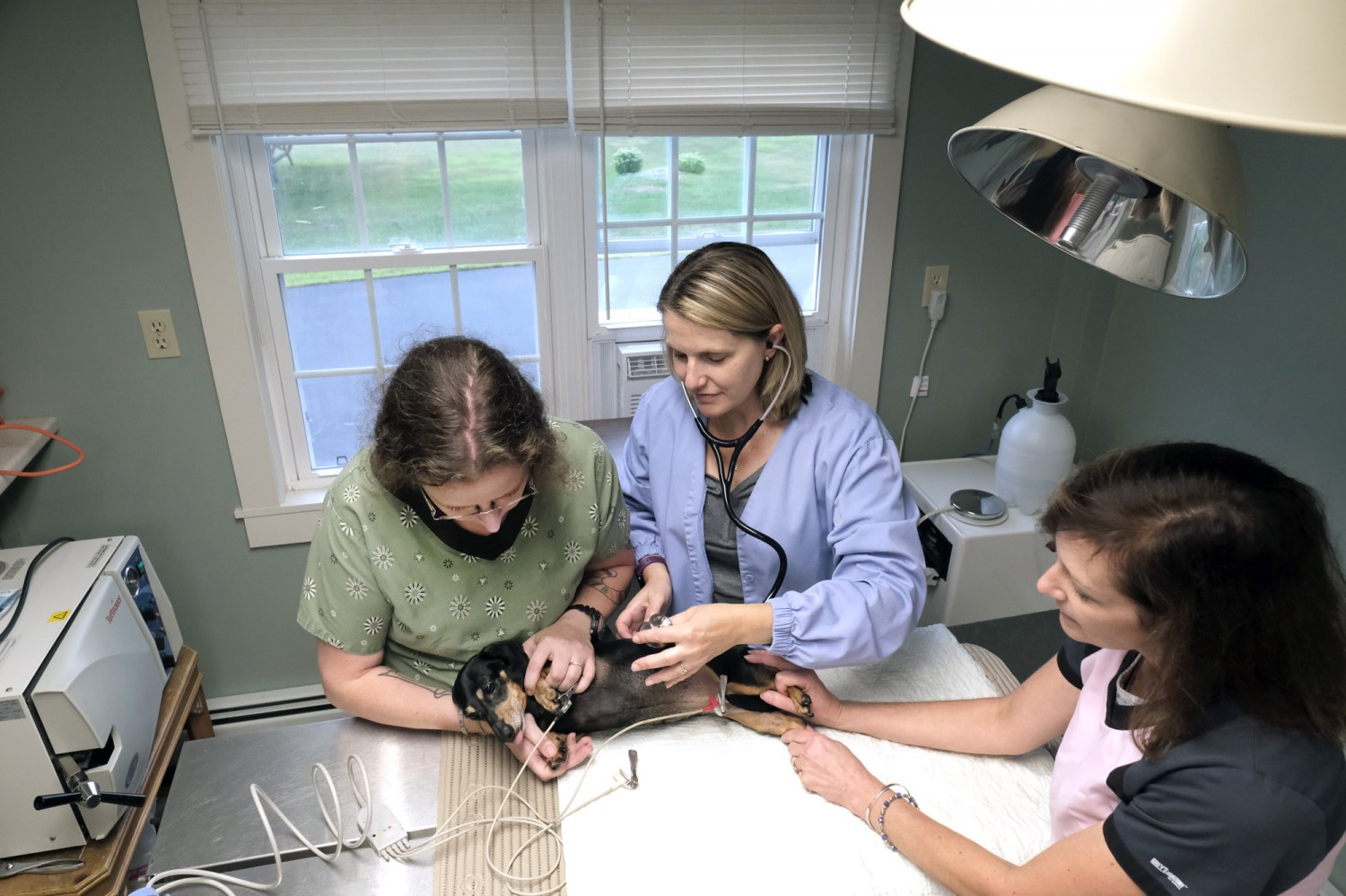|
Many people have questions about various aspects of their pet's surgery, and we hope this information will help. It also explains the decisions you will need to make before your pet's upcoming surgery.

 Is the anesthetic safe? Is the anesthetic safe?
Today's modern anesthetic monitors have made surgery much safer than in the past. Here at Acton Veterinary Clinic, we do a thorough physical exam on your pet before administering anesthetics, to ensure that a fever or other illness won't be a problem. We also adjust the amount and type of anesthetic used depending on the health and medical conditions of your pet.
Pre-anesthetic blood testing is important in reducing the risk of anesthesia. Every pet needs blood testing before surgery to ensure that the liver and kidneys can handle the anesthetic. Even apparently healthy animals can have serious organ system problems that cannot be detected without blood testing. If there is a problem, it is much better to find it before it causes anesthetic or surgical complications. If serious problems are detected, surgery can be postponed until the problem is corrected.
We offer two levels of in-house blood testing before surgery, which we will go over with you when you bring your pet in. Our doctors prefer the more comprehensive screen, because it gives them the most information to ensure the safety of your pet. For geriatric or ill pets, additional blood tests, electrocardiograms, or x-rays may be required before surgery as well.
It is important that surgery be done on an empty stomach to reduce the risk of vomiting during and after anesthesia. You will need to withhold food for at least 10 hours before surgery. Water can be left down for the pet until the morning of surgery.
Vitals during a procedure are constantly monitored by a modern pulse ox. It records an ECG, Blood pressure, heart rate and oxygen saturation. 1-2 technicians are also monitoring the patient and assisting the doctor during the entire process. We place an IV catheter on every pet to administer fluids that helps maintain blood pressure and hydration. A technician sits with your pet until they are completely awake and able to move around after a procedure. Your pet will be monitored by the staff until they go back home to you.
 Will my pet have stitches? Will my pet have stitches?
For many surgeries, we use absorbable sutures underneath the skin. These will dissolve on their own, and do not need to be removed later. Some surgeries, especially tumor removals, do require skin stitches. With either type of suture, you will need to keep an eye on the incision for swelling or discharge. Most dogs and cats do not lick excessively or chew at the incision, but this is an occasional problem you will also need to watch for. If there are skin sutures, these will usually be removed 10 to 14 days after surgery. You will also need to limit your pet's activity level for a time and no baths are allowed for the first 10 days after surgery.
 Will my pet be in pain? Will my pet be in pain?
Anything that causes pain in people can be expected to cause pain in animals. Pets may not show the same symptoms of pain as people do; they usually don't whine or cry, but you can be sure they feel it. Pain medications needed will depend on the surgery performed. Major procedures require more pain relief than things like minor lacerations.
For dogs, we may recommend an oral anti-inflammatory the day after surgery and several days after to lessen the risk of discomfort and swelling. We may also send home a sedative to keep you dog calm and less active during the recovery time. Please do not give aspirin, Tylenol and Advil to any dog or cat for pain.
Recent advances in pain medications have allowed for better pain control in cats than ever before. We administer a pain injection 10 minutes prior to surgery. After surgery, oral liquid or pill may be sent home for 3 days to alleviate discomfort.
Elizabethan collars or the newer Kong collar may also be sent home to prevent licking and chewing. We realize these items are not fun but do facilitate quicker recovery times. Always follow the doctors recommendations for use.
 What other decisions do I need to make? What other decisions do I need to make?
While your pet is under anesthesia, it is the ideal time to perform other minor procedures, such as dentistry, ear cleaning, or implanting an identification microchip. If you would like an estimate for these extra services, please call ahead of time. This is especially important if the person dropping the pet off for surgery is not the primary decision maker for the pet's care. ( Nail trims under anesthesia are free)
When you bring your pet in for surgery, we will need to 5 to 10 minutes of time to fill out paperwork and make decisions on the blood testing and other options available. When you pick up your pet after surgery you can also plan to spend about 10 minutes to go over your pet's home care needs.
We will call you the night before your scheduled surgery appointment, to confirm the time you will be dropping your pet off and to answer any questions you might have. In the meantime, please don't hesitate to contact us with any questions about your pet's health or surgery.
|